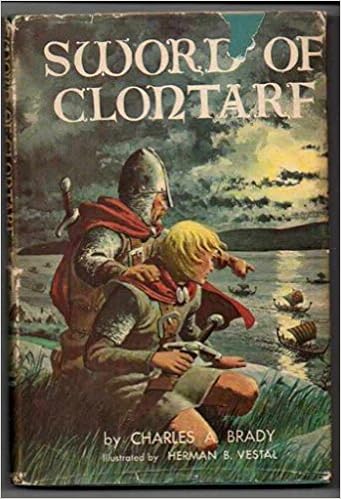Black Horses for the King is the first Anne McCaffrey book that I have ever read. No, I am not joking; prior to this, yours truly had never done more than peek at a page of Miss McCaffrey’s books. The Dragon Riders of Pern series is on my “to read” list, but so far this blogger has not actually read those books.
Knowing her reputation with those novels, however, Black Horses for the King looked like a good place for this writer to begin getting to know Miss McCaffrey and her work. While it doesn’t strike me as an excellent piece, it is enjoyable and well written. I really have no complaints about it, beyond a few minor nitpicks.
The story begins with Galwyn Varianus, who has been apprenticed to his uncle, a rough sailor and pagan who despises him. Following his lead, the crew picks on the boy mercilessly. The fact that Galwyn is currently cleaning up after six seasick passengers below decks isn’t helping much, since their discomfort is making him ill, too. Despite that, he is doing his best to avoid telling off the sailors; doing that only makes them increase their cruel teasing. But when one of the sailors insults the lad’s mother, Galwyn whirls around, ready for a fight…
…Only to be stopped by Comes Artos, the Dux Bellorum. Artos is Latin for Arthur, making this novel an Arthurian tale. Miss McCaffrey, however, is leaving off the magic and other familiar trappings in order to remain as true to history as she can. She is also focusing on an almost mundane aspect of the legend – the large horses Arthur had to buy to repulse the recurrent Saxon invasions.
Artos is sailing to the continent to buy big horses he can breed with the larger ponies in England so that his men can face the Saxons on better terms. On their ponies the Britons cannot face the pagan invaders, since the animals are incapable of carrying the large Englishmen for great distances or long amounts of time. In order to out-maneuver and overcome the invaders, Artos and his Companions need bigger horses. So they are sailing to Septimania to buy them.
When apprised of the Comes’ plan, Galwyn finds he approves of it. Having grown up in a Roman villa prior to his apprenticeship with his uncle, the boy has a fondness for and skill with horses. He would much rather tend the animals than sail, but due to his father’s death, working at sea appeared to be the best way he to support his mother and sisters until he can find a different profession. And better companions.
But when his uncle’s crew goes too far, Galwyn seizes his chance and escapes his hateful relative’s ship. He then buys a pony and follows Lord Artos to the fair in Septimania. There his knowledge of horses, his ability to bargain, and his skill with languages prove invaluable in the purchase of a large group of black Libyans – stallions, mares, and foals. Following their purchase he, Artos, and the rest of the Companions lead the animals to port in order to bring them back to England.
Shipping the creatures across the ocean is difficult work, since they are as unused to the water as the Companions, who are too busy taking care of them to get sick this time. On their first arrival in England, Galwyn makes a final end to his apprenticeship under his uncle. Staying with Artos and his Companions, he helps bring the other two sets of horses to Britain.
From there, he travels to a farm where the animals will be tended and allowed to breed with each other and the biggest Briton ponies. On the way he becomes apprentice to the horse expert friend of Artos, a man named Canyd. Canyd and his fellow horse masters are trying to make the first horse shoe in order to protect the animals’ feet. As Canyd likes to remind everyone around him, whether they want to hear him or not: “No hoof, no horse!”
Black Horses for the King does not strike me as the best of Miss McCaffrey’s work. Still, it is an enjoyable story that presents a good picture of the times in which it is set. Horse and history lovers will find it a great read, and it is hard to stop once you get going with it. In the final analysis, it is a worthy book from a good author.
‘Til next time, readers!








